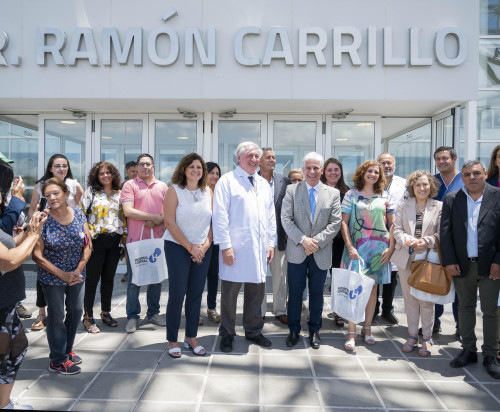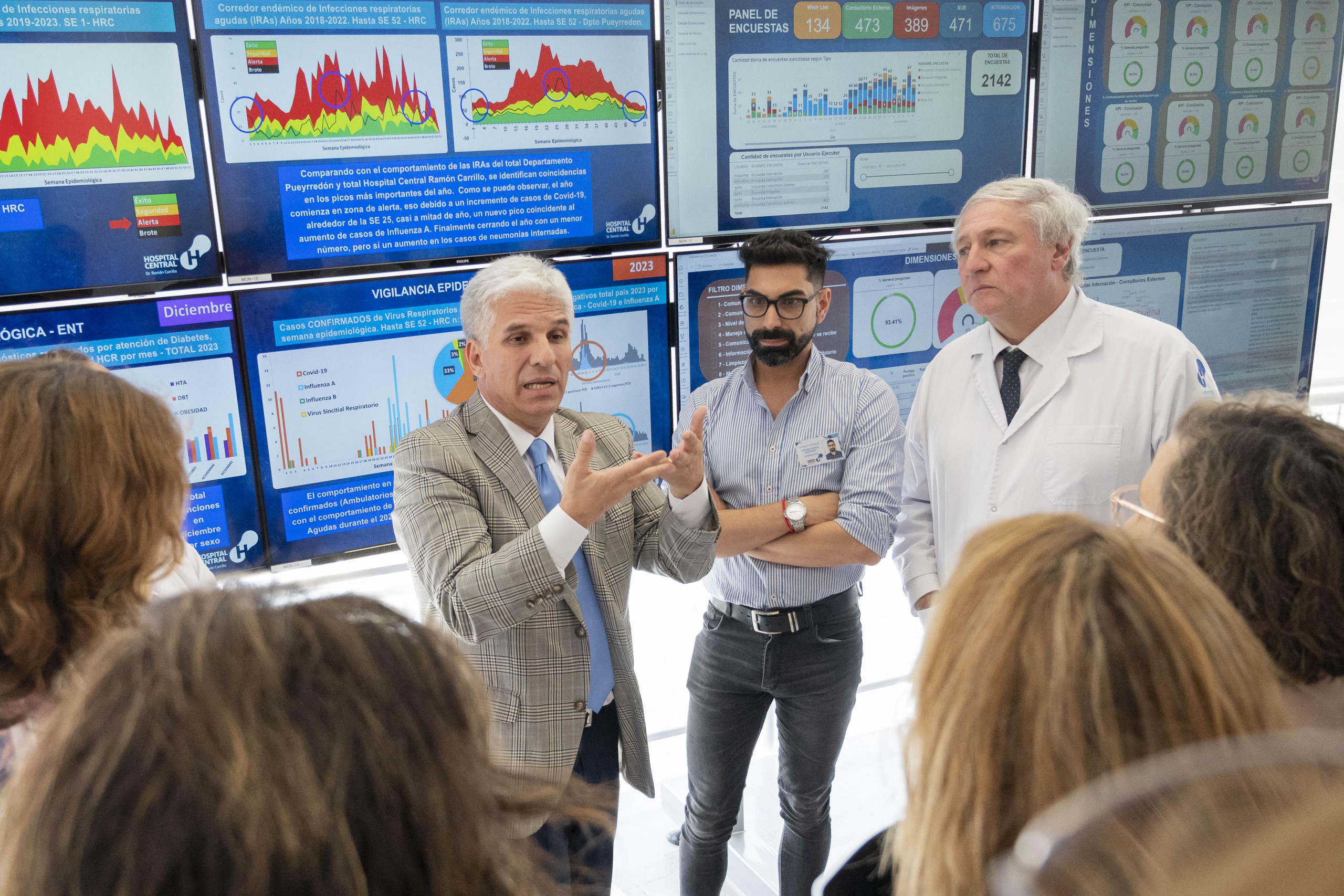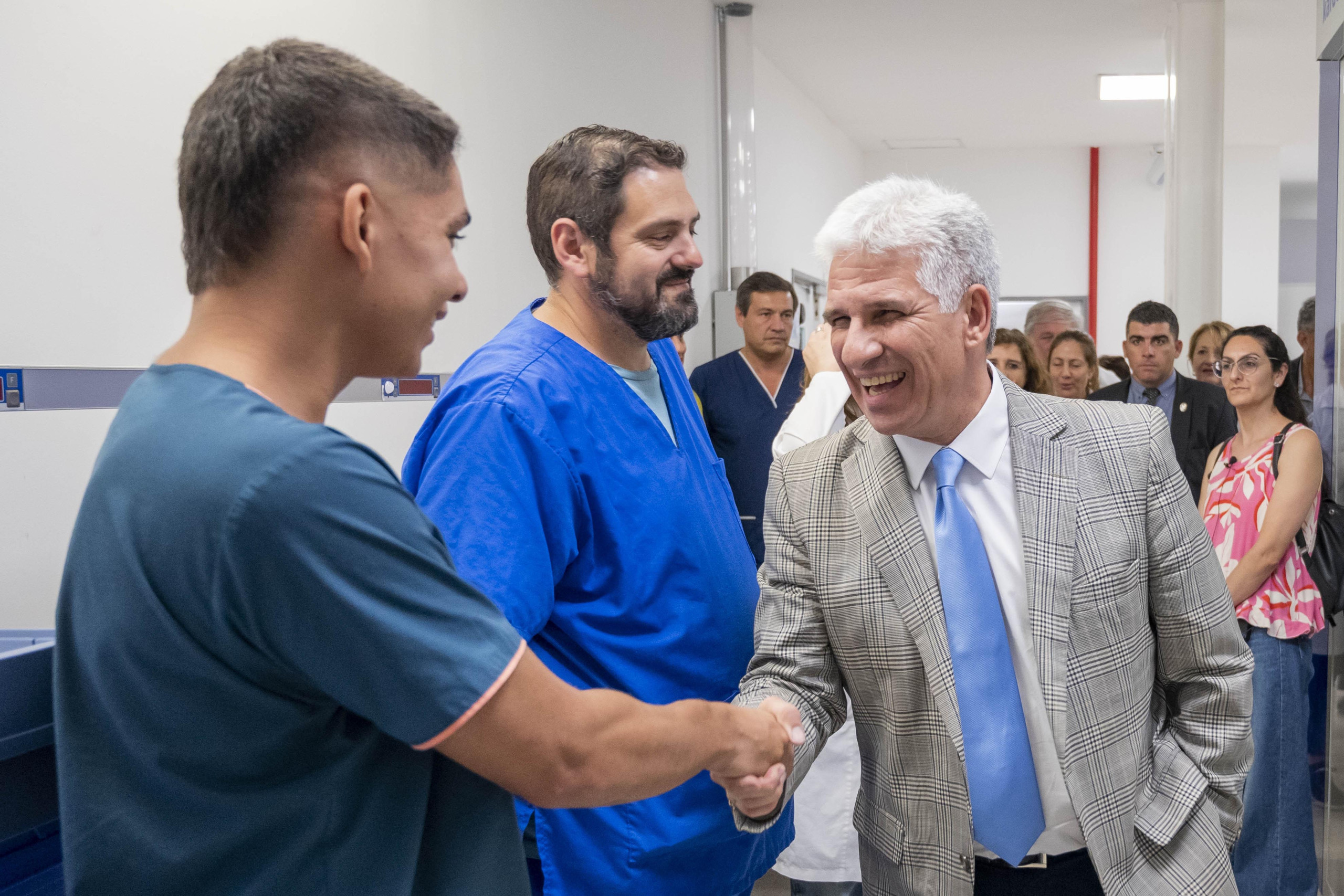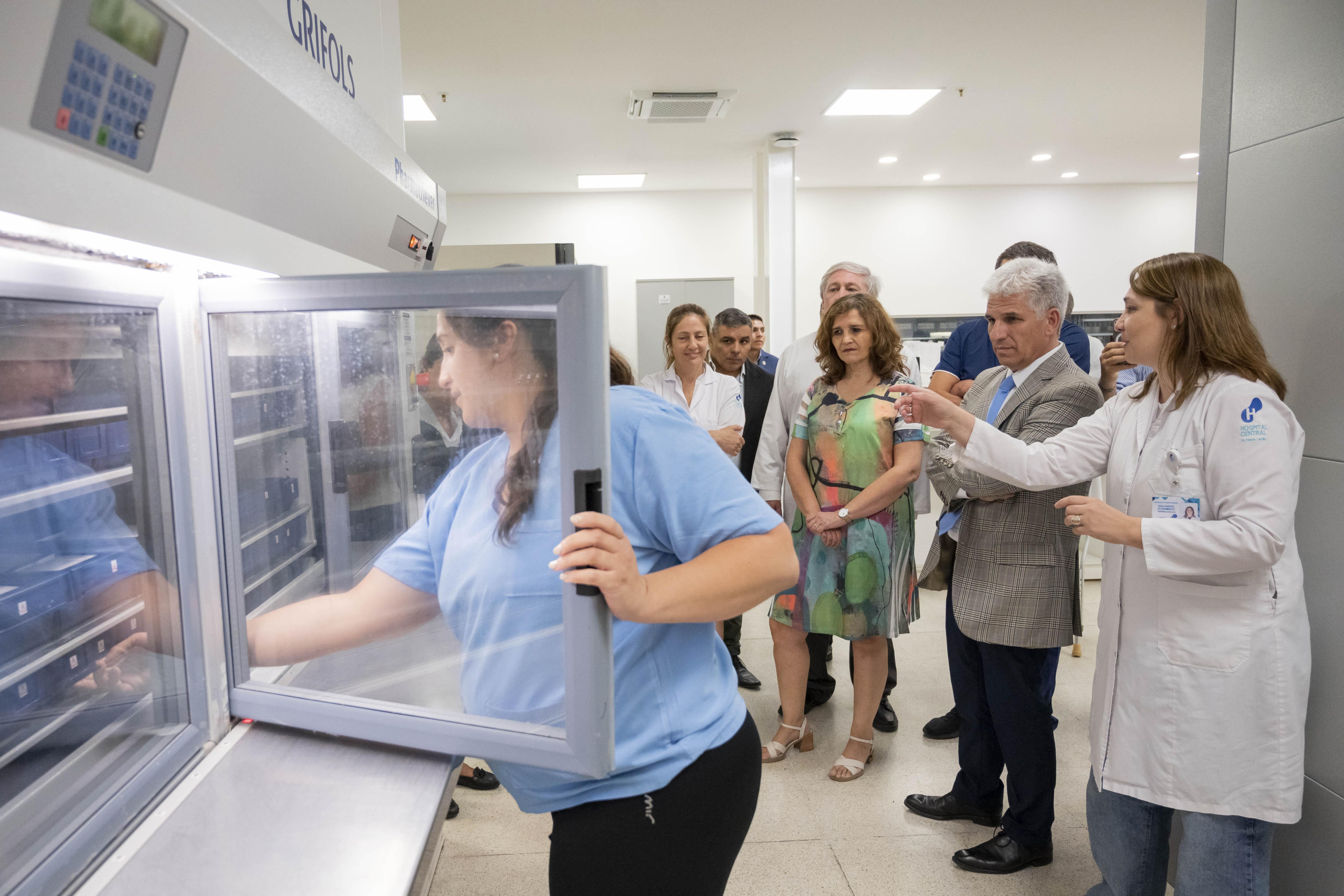“There is a need to develop a protocol to strengthen CAPS and internal medicine.”

During his first visit to the central hospital “Doctor Ramon Carrillo”, Governor Claudio Poggi toured the various premises of the largest provincial public health center, familiarized himself with its work and spoke with staff.

As soon as he got out of the car that left him at the door of the Doctor Ramon Carrillo Central Hospital, Governor Claudio Poggi greeted neighbors who were entering or leaving the provincial public health center. Some even asked to be photographed. This image and the approach of people raising a personal situation or request was a scene that was repeated in several sectors visited by the President during his first visit to the hospital. “We must develop a health care competency protocol, develop programs to strengthen primary care centers (CAPS) and internal medicine, and implement management controls,” Poggi said of the need for effective coordination between health centers and hospitals, according to the degree complexity of the patient’s condition.

The governor’s statement was based on reading statistics he saw on one of the screens in the command center, an area that concentrates the recording and analysis of vital information such as operational information (such as how many patients are in the hospital). wait, minute by minute); epidemiological surveillance and internal communication. The employee explained that on Thursday, the 11th, out of 464 patients on shift, 104 did not show up, which slows down the work of the medical care system as a whole. And hospital board president Adolfo Sanchez Leon added that they have a scale to estimate how many of the admitted patients could be treated in CAPS or in a day hospital because their health problems were not serious or complex. . . He said people usually go straight to Carrillo without first going through the health center closest to their area, which should be the first place they go.

“The first thing the governor asked us to do was to change the organizational climate, to always treat us well. Let people lose their fear, let politics no longer affect health. This change is already noticeable. The climate is different there. The worker also agrees with this. And then we continued to move forward according to his plans. Unload the system of shifts and procedures. This hospital thinks about billing. It was designed to ensure that the patient meets all billing requirements before admission. Even for those patients who do not have social benefits and who depend on the Ministry, this hospital bills the Ministry, which seems pointless to us, because there is only one budget. Our idea is obviously patient first, billing second, because revenue must continue to be respected,” Sanchez de Leon said.
Poggi was accompanied on the tour by presenter and Health Minister Claudia Spagnolo. The official came from another event – a working breakfast with medical staff in the White Room on improving the system of care for citizens – and told Poggi that they had come to good conclusions and were going to start working on them. The tour was also attended by members of the hospital’s board of directors – director Sandra Ottaviani, director Jorge Aostri, medical director Raul Coria and Andrea Lange – and health care representatives.

After walking through the hospital’s waiting room and speaking briefly with some of the patients awaiting treatment, Poggi visited the diagnostic imaging, resonance and tomography control rooms. There he spent a few minutes talking with specialists who explained how these studies are carried out and what equipment they use.
He then continued to the emergency department and entered the shock room (on-call therapy). Doctor Laura Lucero told him what kind of care they provide, what kind of patients they see and how long they stay there.
After passing through the emergency department and the Guard’s operating room, he entered the internal pharmacy, which one staff member described as the “heart of the hospital” as it administers and distributes the medications everyone needs.
There, Poggi spent a few minutes studying the technology they use, including four cardexes, as the “cabinets” for storing medicines are known, each with its own special characteristics. He also saw the room where cytostatic drugs are made.

He then went up to the inpatient (medium care) floor. Later, on his way to the command center, he spoke for a few minutes with Santiago Sain, who told him about the care the province’s public health team provides to the elderly. “We must repatriate pensioners from the south of the province, who will be cared for in La Pampa, in Mendoza,” he told the governor. Poggi was approached at the door as he was leaving by several retired beneficiaries of the PAMI pension fund. The hospital director told them they hope to soon launch a Denture Bank, an initiative they hope will answer one of the biggest needs of older people. “We have a serious problem with patients who are in hospital for three months or more because they cannot get a prosthesis. The prosthetic bank will provide us with greater speed for those patients with trauma, cardiac or neurological problems who require different types of prostheses or supplies. Your stay will be much shorter,” he promised.
Sanchez de Leon confirmed that since he took office last December, they have made some changes to improve public health. “There are a number of new managers and we have made quite a few changes to our recruitment. We will soon sign an agreement with DOSEP to facilitate procedures for those already receiving assistance through this social work. And we are working on optimizing the shift system so that there are fewer procedures. This takes time because there are agreements with social services. The attention of every Puntano resident who comes here is a priority,” he said.
&;
